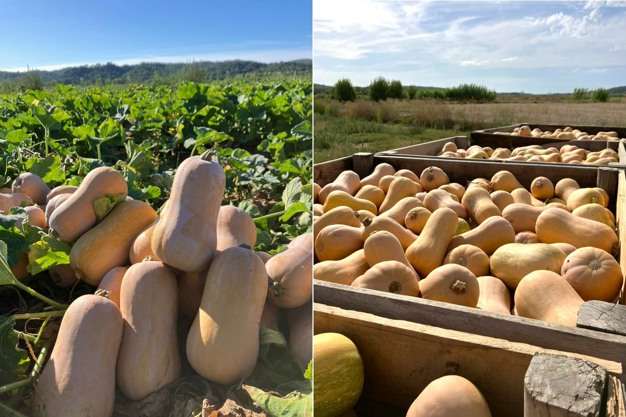The season with the highest demand for pumpkins is starting and expectations are good for this vegetable, whose consumption trend continues to increase.
"The cultivated area has increased by 18%. Production has been partially affected by weather factors, such as the lack of rainfall or high temperatures. However, this has been offset by the increase in area, so the final balance is very similar to that of the previous season," stated Joaquín Navarro, head of pumpkin development at Sakata Seed Ibérica.

The main pumpkin production areas in Spain are Murcia, Alicante, and Castilla-La Mancha. "The first pumpkins are harvested in Murcia and Alicante in early June. The season continues from mid-September to mid-October in the inland areas of the peninsula, the later ones in terms of harvesting," stated Joaquín Navarro.
"Production is mainly destined for domestic consumption. The first harvests go straight to sale and are stored shortly. However, the September and October harvests are stored so they can be sold throughout autumn, winter, and even until the end of May of the following year. The goal is to be able to market national pumpkins throughout the entire year," he added.
Thanks to plant breeding companies such as Sakata, which has launched the Estrella variety, it's now possible to consume national pumpkin all 12 months of the year without depending on imports. In addition, Sakata has expanded its portfolio with the Orionit and Carlota varieties, the former aimed at the fresh market and the latter for the industry. "They both have a very long shelf life," Joaquín Navarro stressed.
"The Spanish prefer to consume fresh pumpkin. However, the consumption of processed pumpkin in the pre-prepared and pre-cooked convenience food range is increasing rapidly. In the not-too-distant future, the processed product will surpass the fresh product, as is already the case in some Spanish supermarkets", he stated.
As is tradition, producers will donate 15,000 pumpkins to more than 70 schools in Spain and Portugal, which in turn promote waste reduction: "Thanks to its skin, this variety can be eaten," stated Amparo Pellicer, Sakata Seed Ibérica's Food Chain Manager.
 For more information:
For more information:
Sakata Seed Ibérica S.L.U.
Plaza Poeta Vicente Gaos 6 bajo
46021 Valencia (Spain)
Tel: +34963563427
Email: joaquin.navarro@sakata.eu
www.sakata.com
